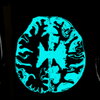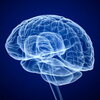Image

The Beckman Institute focuses on three themes: molecular science and engineering, integrative imaging, and intelligent systems.
Its core research facilities include the Biomedical Imaging Center and the Imaging Technology Group (ITG), which also includes Beckman's Microscopy Suite and Visualization Laboratory.










387 Morrill Hall, MC-119
505 South Goodwin Avenue
Urbana, IL 61801